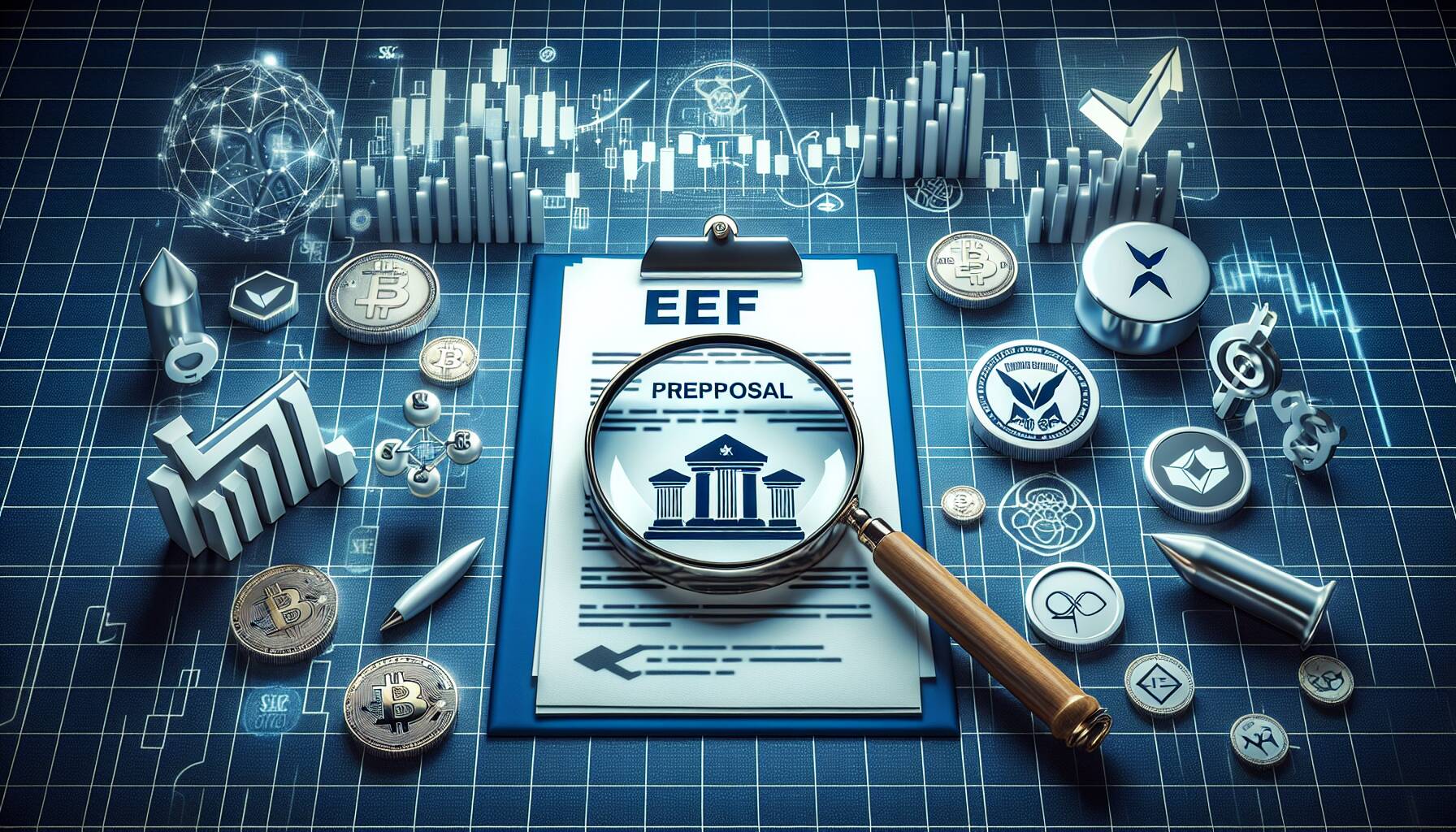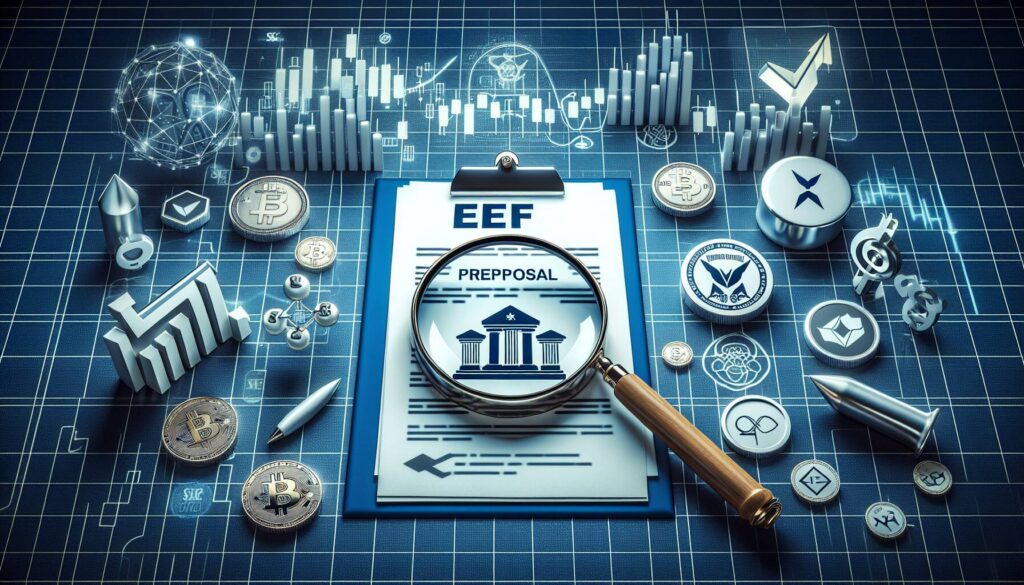The U.S. Securities and Exchange Commission (SEC) has taken a significant step in the world of cryptocurrency by formally reviewing the WisdomTree XRP Trust, a proposed spot exchange-traded fund (ETF). This move, initiated by the Cboe BZX Exchange, marks the first time the SEC has engaged in a formal review of a U.S.-based spot XRP ETF. If this ETF is approved, it would become a landmark offering, paving the way for similar financial products centered around other cryptocurrencies.
Designed to track the market price of XRP, the ETF would utilize the CME CF Ripple-Dollar Reference Rate, providing investors a streamlined option to gain exposure to XRP without the complexities associated with private keys or self-custody. Instead, investors could participate through traditional brokerage accounts, potentially broadening access to a wider audience.
The SEC’s decision process includes a public comment period, allowing for input on whether the ETF adequately addresses concerns such as market manipulation and investor protection.
This review comes amid ongoing debates regarding the regulatory status of XRP. Stuart Alderoty, Chief Legal Officer of Ripple, recently emphasized that XRP should not be categorized as a security. He urged the SEC for clearer guidelines, stating that ambiguous terms create more confusion than understanding in the regulatory landscape.
As the SEC reviews this pivotal application, the cryptocurrency community watches closely, awaiting a broader impact on the evolving regulatory environment for digital assets.

Key Points on the SEC Review of WisdomTree XRP Trust
Below are the most important aspects of the SEC’s review of the WisdomTree XRP Trust and its potential impact:
- Initiation of SEC Review:
- The SEC formally started the review process for the WisdomTree XRP Trust, marking a significant step for cryptocurrency ETFs.
- First U.S.-based Spot XRP ETF:
- If approved, this would be the first spot XRP ETF in the U.S., possibly leading to similar products for other cryptocurrencies.
- Access to Traditional Brokerage Accounts:
- The ETF would allow investors to gain exposure to XRP without the need for managing private keys or self-custody, simplifying the investment process.
- Market Evaluation and Public Comments:
- The SEC is soliciting public comments on the ETF design, focusing on concerns about market manipulation and investor protection.
- Ripple’s Position on XRP:
- Ripple’s Chief Legal Officer argues that XRP should not be considered a security, calling for clearer regulations to prevent confusion among market participants.
- Regulatory Clarity:
- Alderoty emphasizes the importance of clear rules to avoid misclassification of entities in the cryptocurrency space, which could impact future investments and compliance.
Comparative Analysis of the WisdomTree XRP Trust ETF Application
The recent initiation of a review by the U.S. Securities and Exchange Commission (SEC) for the WisdomTree XRP Trust ETF signifies a pivotal moment in the cryptocurrency investment landscape. As the SEC evaluates this proposal, it stands in contrast to other recent ETF applications, such as those from major players like BlackRock and Invesco, which have dominated headlines with their Bitcoin ETF applications. While those products target the more established Bitcoin market, WisdomTree’s focus on XRP represents a unique opportunity, potentially broadening the spectrum of crypto exposure available to traditional investors.
Competitive Advantages: The WisdomTree XRP Trust ETF allows for a streamlined investment approach by enabling access to XRP through conventional brokerage platforms. This accessibility could attract a wider array of investors who are hesitant to delve into the complexities of cryptocurrency wallets and self-custody methods often associated with direct XRP ownership. Moreover, its backing by a recognized entity like WisdomTree lends additional credibility and stability in a market known for volatility.
However, disadvantages cannot be overlooked. The ongoing scrutiny from the SEC regarding regulatory compliance and the classification of XRP as a security creates uncertainty. This apprehension may deter potential investors who prioritize regulatory clarity and security. Additionally, the ETF’s dependency on market prices can expose investors to the same fluctuations inherent in crypto markets, potentially leading to significant risk.
This development could significantly benefit institutional investors and retail clients seeking exposure to cryptocurrencies without the intricacies of direct investment, catering especially to those uncomfortable with the security challenges of digital asset management. Conversely, the current regulatory uncertainties may pose problems for existing crypto traders and companies involved in XRP transactions, as a potential ruling against the security classification could impact their operations. As public feedback influences the SEC’s decision, stakeholders across the crypto sphere will be watching closely, hoping for a favorable outcome that could pave the way for an array of similar investment products in the ever-evolving crypto market.

















